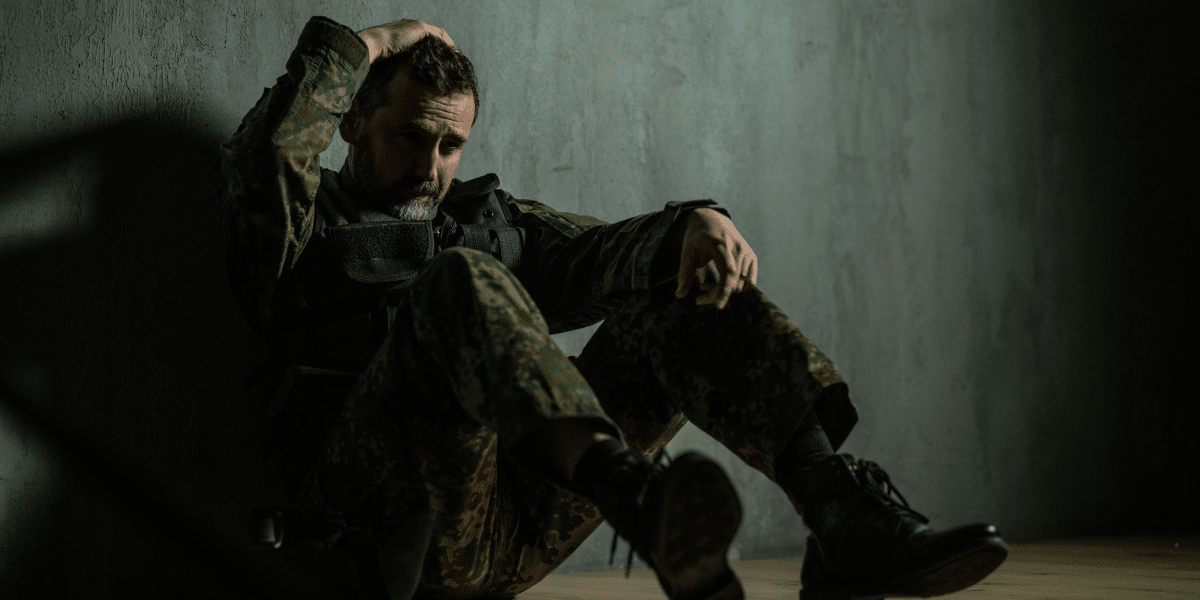Mental health is a crucial aspect of overall well-being, particularly for individuals in high-stress professions such as the military. The unique challenges faced by military personnel, including exposure to combat, long periods of separation from loved ones, and the transition back to civilian life, can have profound effects on their mental health. Addressing these challenges requires a multifaceted approach that includes improving awareness, reducing stigma, and providing practical support and treatment options.
The development of support systems and the involvement of various organizations are vital in promoting mental health among soldiers and veterans. Arne Eliasson explains that by understanding and addressing the specific mental health needs of military members we can better support them in maintaining their mental well-being and overall quality of life.
Mental Health in the Military
The importance of mental health within military settings cannot be overstated, especially considering the demanding and often traumatic nature of military duties. Research indicates that a significant portion of both veterans and active-duty soldiers experience mental health issues. The mental well-being of these individuals is crucial not just for their personal quality of life but also for the operational effectiveness of the military as a whole.
Statistics reveal that mental disorders such as PTSD, depression, and anxiety are notably higher among those who have served in the military compared to their civilian counterparts. This data underlines the pressing need for comprehensive mental health strategies tailored to the unique conditions of military service.
Addressing these challenges is complex, involving an array of psychological, social, and physical factors. The military’s acknowledgment of these issues has led to improved diagnostic measures and increased resources, aiming to support its personnel better. Nevertheless, the stigma surrounding mental health care persists, acting as a barrier to accessing necessary treatment and support.
Key Mental Health Challenges
Among the myriad of challenges faced by military personnel, PTSD stands out as a predominant issue affecting both veterans and active duty soldiers. This condition often results from exposure to traumatic combat situations and can severely impair an individual’s ability to function in daily life. Depression and anxiety also play significant roles, weaving a complex web of mental health hurdles that many find difficult to overcome. Substance abuse frequently emerges as a coping mechanism, particularly among veterans struggling with the transition back to civilian life—a process that brings its own set of psychological stressors.
The relentless stress associated with active military service exacerbates these mental health issues. Soldiers often endure long periods of high alertness and face life-threatening dangers, both of which can trigger long-term psychological effects. The collective impact of these can lead to significant mental health declines, making effective treatment and support systems essential.
Another significant factor is the prolonged separation from loved ones, which can strain personal relationships and increase feelings of isolation and loneliness. The hierarchical nature of military life also impacts mental well-being. This structure can limit personal autonomy and contribute to a sense of powerlessness, which may exacerbate mental health issues. Recognizing these influencing factors is crucial in developing effective mental health programs and support systems explicitly tailored to military needs.
Support Systems and Current Interventions
The military and Veteran Affairs have developed a robust framework of resources aimed at addressing the mental health needs of both active duty soldiers and veterans. These include counseling services, crisis hotlines, and specialized programs designed to treat PTSD and other mental health disorders. The role of nonprofit organizations is also pivotal, contributing to the support through outreach programs, peer support groups, and public education initiatives aimed at destigmatizing mental health issues.
Strategies for Improving Mental Health Support
Improving the accessibility and quality of mental health care in military settings is an ongoing challenge that requires innovative strategies and policy enhancements. Initiatives aimed at promoting mental health awareness are crucial, as they help reduce the stigma that often prevents military personnel from seeking necessary help. By fostering an environment where mental well-being is openly discussed and prioritized, leaders can encourage more individuals to take proactive steps toward managing their mental health.
Accessing Help and Resources
Navigating the array of available mental health resources can be daunting for those in need. Detailed guides and clear pathways for accessing help are paramount, ensuring that veterans and active-duty soldiers can find the support they require without unnecessary complications. Programs and organizations dedicated to assisting military personnel should focus on making their services as accessible and user-friendly as possible, enabling a smoother transition to receiving aid and promoting long-term mental health.
Disclaimer: This content is for informational purposes only and is not intended as medical advice, nor does it replace professional medical expertise or treatment. If you have any concerns or questions about your health, always consult with a physician or other healthcare professional.
Published by: Khy Talara








